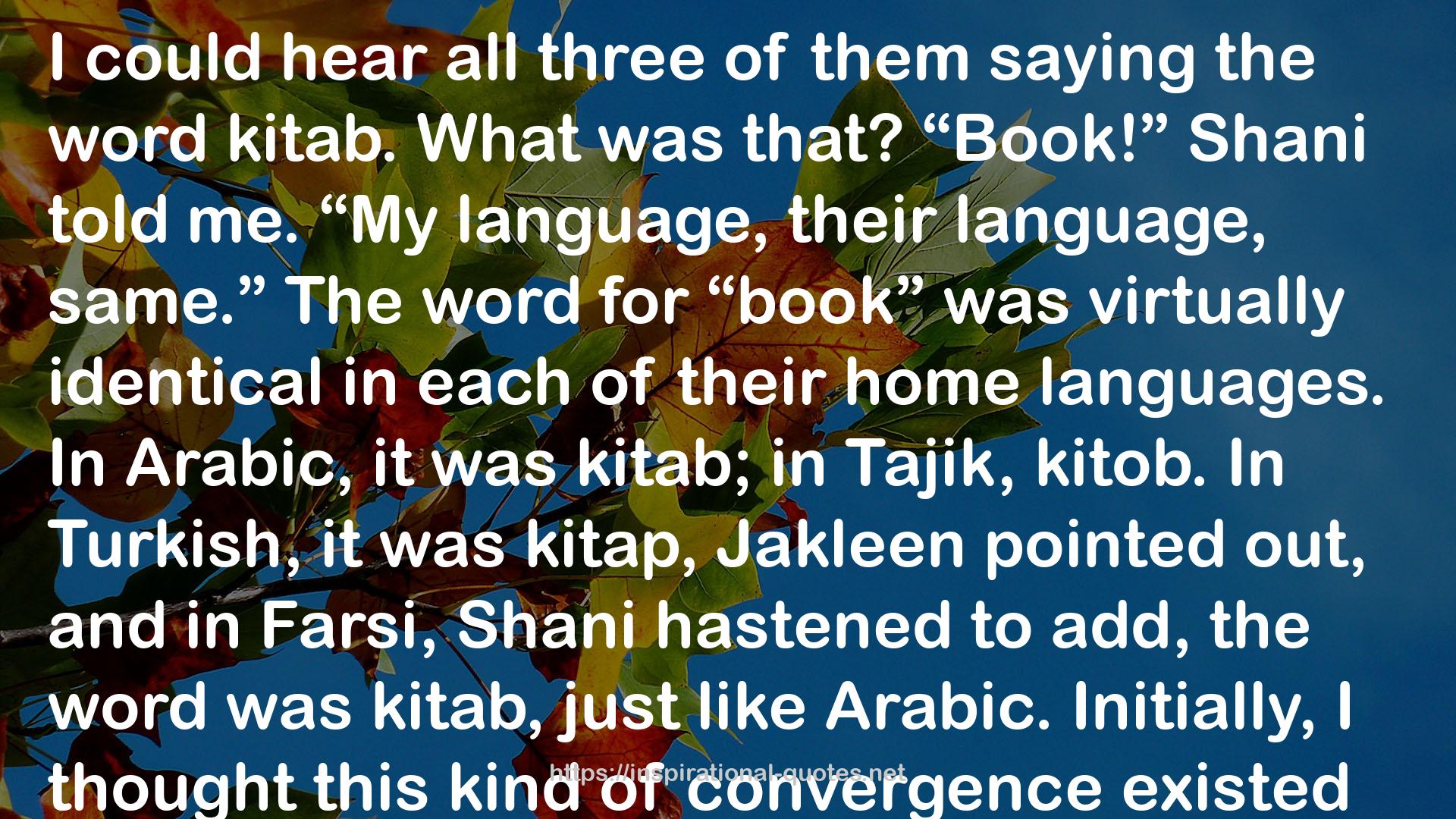" I could hear all three of them saying the word kitab. What was that? “Book!” Shani told me. “My language, their language, same.” The word for “book” was virtually identical in each of their home languages. In Arabic, it was kitab; in Tajik, kitob. In Turkish, it was kitap, Jakleen pointed out, and in Farsi, Shani hastened to add, the word was kitab, just like Arabic. Initially, I thought this kind of convergence existed only in the Middle East, but as I spent more time with students from Africa, I came to realize I was wrong. Dilli told me that in Kunama, the word for “book” was kitaba, and Methusella said in Swahili it was kitabu. That was the moment when I finally grasped my own arrogance as an English speaker. I mean, the arrogance harbored by someone who knew only European languages, which rendered the well- laced interconnectedness of the rest of the world invisible. I was starting to see it, though— the centuries- old ties that bound Africa and the Middle East, born of hundreds of years of trade and travel and conquest and marriage. Once the students grasped that I would exclaim with delight if they found a word that had moved through many of their countries, they started flocking to me to share loanwords and cognates. More than one- third of Swahili comes from Arabic, meaning the links between those two languages are as powerful as those between English and Spanish. But it was also possible to chart the reach of Arabic across the entire African continent, into Kunama and Tigrinya as well. "
― Helen Thorpe , The Newcomers: Finding Refuge, Friendship, and Hope in an American Classroom
